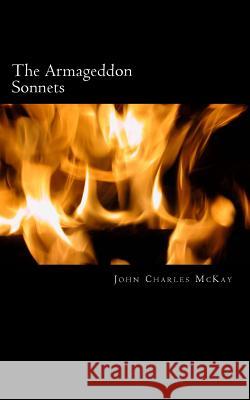The Armageddon Sonnets: & other poems » książka
The Armageddon Sonnets: & other poems
ISBN-13: 9781502865540 / Angielski / Miękka / 2014 / 68 str.
The Armageddon Sonnets. These poems are gutsy, gentle, ugly and quaint. The poet's voice is a mixture of feeling, detachment, love, anger, close observation, humour and the prophetic. The themes are, the failed experiment of human independence from God and its consequences, a woman lost at sea, the nightmarish journey of life's broken road, the ugliness of men, the beauty of a woman, extending a hand to orphaned words, nature singing to its Maker and not least Hope. John Charles McKay writes in English, Scots and occasionally no language at all. When something elemental is lost the elements themselves become the medium for recording this, (Shine on Paper Moon). He reserves his native Scots tongue for his most lacerating poems. He says, 'Scots is rich in terms of abuse. It's wonderful to have a good rant at someone's expense and they remain quite ignorant of the fact. Wicked? Let it be.' (Me Richt Lurden?), (Babylon). Although the author dislikes the term 'Formalist' sonnet, villanelle, ballad, haiku and muwashshah are the primary vehicles for his poetry. Where free verse occurs it struggles to escape the strictures of form. The poet subscribes to the view that all good poetry is by definition 'a made thing' and must have some form to exist. Although a Scot writing in Scots about Scotland John Charles McKay is by religious and temperamental persuasion an Internationalist. The God at the centre of his life and poetry has no national favourites, although some would like to think so, (Stathnaver). The set of ten sonnets that comprise the 'Armageddon Sonnets' address the subject of God's pending intervention in man's affairs, individual Armageddons of the human spirit (CTs), (Lorca), the holocaust of abortion (Pointless Sonnet), the great hypocrisy of religion that has led men to confrontation with God, (Mountain Storm), (WASPs) and God's fix (At Source Of Dee).
Zawartość książki może nie spełniać oczekiwań – reklamacje nie obejmują treści, która mogła nie być redakcyjnie ani merytorycznie opracowana.











